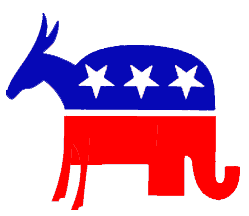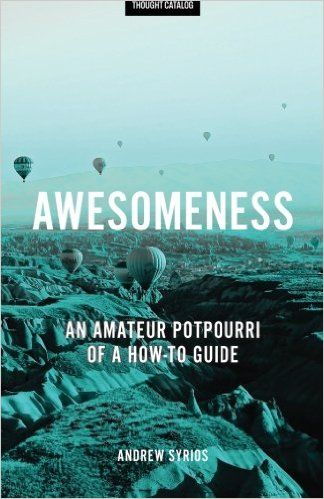|
And here is the second piece, originally from SwiftEconomics.com, on why political terminology often obscures more than it clarifies. I may have oversold it here, but I still believe it's good food for thought. See Part 1 here. As seen in Part 1, political terms, such as liberal, conservative or libertarian, are muddled enough. Unfortunately, political organizations, popular terms and ideologies have many of the same issues. The political parties in the United States have gone through whole sale shifts in political ideology. Republicans used to be the party of tariffs and protectionism, now they are avid free traders. Democrats were the party of slavery and Jim Crow, before becoming the party of Civil Rights and Affirmative Action. In no area is this shift more apparent than in foreign policy. Today, Republicans are seen as the hawkish, militarists and advocates of an aggressive foreign policy while Democrats are seen as the peace-loving, doves. However, a quick glance at history reveals this is not the way it has always, or evenly recently, been. The four major wars the United States took part in during the 20th century were all entered into by Democratic presidents (World War I: Woodrow Wilson; World War II: Franklin Delano Roosevelt; Korean War: Harry Truman; Vietnam War: Lyndon Johnson), two of which were ended by the Republicans who promised to do so (Dwight Eisenhower with Korea and Richard Nixon, albeit pathetically, with Vietnam). Take a quick look at the party platforms from 1952 (Eisenhower vs. Stevenson) and 1968 (Nixon vs. Humphrey) and ask which one looks more aggressive: “We urge continued effort, by every honorable means [italics mine], to bring about a fair and effective peace settlement in Korea.” Even as late as 2000, George Bush and the Republicans decried Bill Clinton for nation building in Somalia, Haiti and Serbia. The difference in rhetoric between the 2000 and 2004 Republican platform is quite, well, embarrassing: “In the last eight years the administration [of Bill Clinton] has squandered the opportunity granted to the United States by the courage and sacrifice of previous generations: Or even more embarrassing, take a look at what George Bush, in his 2000 speech at the Republican National Convention, outlined as the requirements for the United States to use military force: “A generation shaped by Vietnam, must remember the lessons of Vietnam. When America uses force in the world, the cause must be clear, the goal must be just and the victory must be overwhelming.” (3)  Well that’s a solid 0-3. At least George Bush was able to justify this about-face with a whole host of meaningless political rhetoric. What would politicians, of either party, do if they couldn’t throw words like freedom, liberty, democracy, change, hope, opportunity, or equality around? Take the word “freedom,” which has been misused to point of pure, ridiculousness. For example, George Bush couldn’t go more than a few sentences without saying the word, even while passing legislation such as the Patriot Act, which obviously curtailed many of our freedoms here in the United States.* Or when France declined to support the United States in the Iraq War, the Bush administration decided to go all 3rd grade on those cheese-eating, surrender monkeys, and rename French fries, the very clever name of “freedom fries” (French fries are not actually French by the way). “Democracy” is another word that has suffered a similar fate. The United States’ has made a mission of exporting it for crying out loud. However, we only like it when democracy goes our way. Take the Palestinian election in 2006, when Hamas was elected as the majority party. The United States refused to even recognize them! I’m certainly no fan of Hamas, but you can’t try to export democracy and then whine and pout when you don’t like the winner. If that’s the case, then you weren’t a fan of democracy in the first place, you were just a fan of the word “democracy.” Then there’s “equality,” a term often used as a cudgel among the political-correctness police. The common, borderline Orwellian application tends to take the form of some interest group demanding “equal rights” through some sort of government enforced special privileges. It all boils down to whether equality means equality of outcome, or equality of opportunity; while discrimination certainly exists, the two types of equality can’t coexist, especially financially speaking, since everyone pursues different goals which lead to different ends. Still, “equality” remains an incessantly popular buzzword, especially on the left. Finally, the word “change,” which every challenger uses when running against the incumbent party and which Barack Obama has made a career out of. Yet, as we’ve seen, whether it be foreign policy, spending, etc., a politician can run a campaign on change, without actually changing much… and Barack Obama is a perfect case study for this.** So these words are continuously tossed around in a consistently vague and disingenuous way. I think politicians almost prefer not to define them. After all, if these words were defined, it would be much easier to see politicians are, basically, full of crap. Unfortunately, politicians and political parties are not the only ones who use vague or hollow terminology. The same term is often used to mean many different things, by all sorts of different groups and organizations holding fundamentally different beliefs. Say if someone were to ask you: “Are you in favor of Civil Rights?” The answer would probably, well hopefully, be yes; but by what definition? The NRA and the ACLU have very different ideas of what “civil rights” entail. If someone were to ask you: “Are you a libertarian?” What do they mean? They could be referring to a civil libertarian, a libertarian by the American definition, a libertarian by the European definition or just someone who likes liberty. How about if someone were to ask you: “Are you a feminist?” Well, just a brief glance at Wikipedia tells us this question, to say the least, is a little vague, given the “subtypes” available: – Amazon It seems to me that gender feminism and womanism feminism are somewhat redundant; regardless, many of these subtypes are not subtypes at all. Some have diametric world views that are incompatible with each other. For example, individualist feminists and Marxist feminists agree with each other on almost nothing, other than the basic premise that “women are totally awesome.” Even with religion, simple answers do little to suffice. Shiite’s and Sunni’s continue to kill each other in Iraq despite both groups being “Muslims.” This bloodshed is very reminiscent of the way that Protestants and Catholics killed each other for centuries after the Reformation (30 Years War, conflict in Ireland, etc.), despite both groups being “Christian.” According to the World Christian Encyclopedia, there are almost 34,000 different denominations within Christianity alone. (5) Some are relatively similar, say Anglicanism and Methodism. Others are worlds apart. The Gnostic’s, whom no longer exist, believed that the God of the Old Testament was actually at odds with the God of the New Testament. The goal of these Gnostics seems somewhat Buddhist actually: teaching that human souls are trapped in a material world, the goal of which, is to escape said material world. Even today, many Christians are at theological odds with each other. Many old-school Catholics, who protest the reforms made by Vatican II in 1962, believe that only Catholics will go to Heaven. Mel Gibson even went so far as to imply his Protestant wife would actually go to Hell (they’ve since filed for divorce… shocking, I know). Given all these differences, even to say one is a Christian or Muslim is, at best, only a partial description. It becomes quite evident that these labels, political or otherwise, are simply shortcuts, if not meaningless altogether. In my opinion, if you fall in line completely with either the Democratic or Republican platform (as discombobulated and contradictory as those platforms tend to be), or just about any other political organization, you are, in all likelihood, a complete tool. There is no reason that someone who is pro-life should necessarily oppose gay marriage. There is no reason that someone who supports the gold standard should necessarily oppose the minimum wage. There is no reason that someone who supports drug legalization should necessarily support a gun ban. These are different issues, and as painstaking as it may be, an opinion on each one needs to be arrived at individually, if one’s opinion is really to matter. Sometimes it may be better to just say “I don’t know.” The situation in Sri Lanka, for example, is a complex one: Are the Tamil Tigers ruthless terrorists, or are they freedom fighters standing up against the oppressive Sinhalese government? I honestly don’t know and don’t really have the time or motivation to find out. But to just say “I don’t know,” often is better than identifying blindly with an ideology, political party, organization or buzzword. At the very least, it’s less muddled and confusing. ____________________________________________________________________________________________________________________ * For example, the Patriot Act allows federal agents to write their own search warrants and enter suspect’s homes without their knowledge before or after. This is in direct contradiction with the 4thamendment of the U.S. Constitution, which reads as follows: “The right of the people to be secure in their persons, houses, papers, and effects, against unreasonable searches and seizures, shall not be violated, and no warrants shall issue, but upon probable cause, supported by Oath or affirmation, and particularly describing the place to be searched, and the persons or things to be seized.” (6) **While the standard rhetoric from Democrats and Republicans would make it seem like Barack Obama and George Bush are worlds apart, their policies are actually very similar. I discuss this in detail here, but briefly, both have substantially raised government spending, deficits and increased regulations. Furthermore, Obama’s plan to withdraw from Iraq is similar to what Bush had already negotiated: Obama voted to reauthorize the Patriot Act and while he shut down Guantanamo Bay, he is still using the rendition program Bush put in place. The Cap and Trade policy he just pushed through Congress is similar to what John McCain proposed as well, the candidate Bush endorsed.
_______________________________________________________________________________________ (1) The American Presidency Project, “Democrat Party Plaform of 1952,” “Republican Party Platform 1952, Democrat Party Platform 1968,” and “Repulican Party Platform 1968,” http://www.presidency.ucsb.edu/platforms.php (2) Ibid., “Republican Party Platform of 2000,” and “Republican Party Platform of 2004,” http://www.presidency.ucsb.edu/platforms.php (3) George Bush, 2000 Republican National Convention Acceptance Speech, August 3rd, 2000, Transcript can be seen here: http://www.pbs.org/newshour/election2000/gopconvention/george_w_bush.html (4) “Feminism,” Wikipedia, Retrieved July 1st, 2009, http://en.wikipedia.org/wiki/Feminism (5) Quoted from Religious Tolerance.org, “Relgions of the World,” http://www.religioustolerance.org/worldrel.htm#wce, David Barrett et al, World Christian Encyclopedia,Oxford University Press, 2001 (6) “The United States Constitution,” 1787, U.S. Constitution Online, Retrieved July 1st, 2009, http://www.usconstitution.net/const.html
Comments
|
Andrew Syrios"Every day is a new life to the wise man." Archives
August 2018
Blog Roll
Bigger Pockets REI Club Tim Ferris Joe Rogan Adam Carolla MAREI Worcester Investments Entrepreneur The Righteous Mind Star Slate Codex Mises Institute Tom Woods Consulting by RPM Swift Economics Categories |

 RSS Feed
RSS Feed


